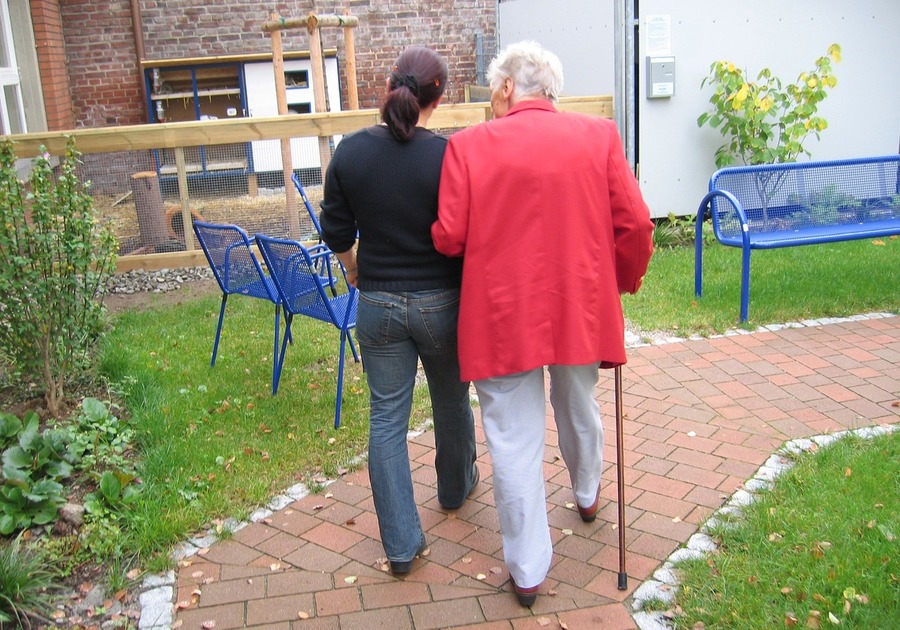Macaroni KID Pasadena-Severna Park-Glen Burnie and Assisted Living Locators in Annapolis are pleased to bring you the third article in our monthly Sandwich Generation article series we launched in April. We designed this series to help you manage situations that you might find yourself in as part of the Sandwich Generation, as you care for older or ill parents or loved ones.
The sandwich generation as defined by Merriam-Webster is, "a generation of people who are caring for their aging parents while supporting their own children."
In this article, we learn what to expect after loved ones are discharged from the hospital and how we can help avert a return to the hospital.
This article is sponsored by Jennifer McAndrews of Assisted Living Locators in Annapolis. Contact Jennifer to help you and your family find the right care option for your loved one!
Thank you to Melissa Pittman of TheKey Home Care in Annapolis for offering her professional insights on this issue.
Transitioning from Hospital to Home
Do you know that 1 in 5 patients are readmitted to the hospital within a month of leaving? Proper support and assistance are vital to the health and independence of your loved one.
There is a three-day window of opportunity that sets the patient up for a successful transition from hospital to home. If you miss that window, the patient has a 1 in 5 chance of being back in the hospital within 30 days. The goal once they are home is to prevent their return.

At-Home Care Services
A hospital case manager will likely set up home health services to come to the home before your loved one leaves the hospital. These services are covered by insurance and are visits from an occupational, physical, and if applicable, a speech therapist.
A registered nurse will also visit the home weekly to ensure that the discharge goals are being met. Since these visits are about an hour long, a few days a week, more help is often needed.
Partnering with a licensed, reputable home care company will allow the patient to have professional oversight and help with activities of daily living. A caregiver can come into the home for as little as 4 hours per day up to 24 hours, depending on how much support is needed. A consultation with a home care company should occur prior to discharge so the proper amount of care is set up prior leaving the hospital.
 |
Palliative and Hospice Care
In some cases, one should also consider palliative or hospice care at home. In addition to improving quality of life and managing symptoms, palliative care can help patients understand their choices for medical treatment. Although palliative and hospice are similar, it is important to note that 90% of hospice care is paid through the Medicare hospice benefit, so hospice patients must meet Medicare’s eligibility requirements. Palliative care patients, though, do not have to meet the same requirements.
Professional caregivers work alongside of hospice to support the client on days when hospice is not there. Home care is an out-of-pocket expense for the patient unless they have long term care insurance that will help cover the cost.
Other Options
Some have the goal of remaining at home with proper support. Others prefer to move to assisted living communities where they can receive support. We will learn more about this option in the fourth article in our Sandwich Generation Series: "When Is It Time for Assisted Living?" coming out in July.
Our fifth and last article will be about helping your loved ones with wills and estates, coming out in August.
Other articles in the Sandwich Generation series
The first article, "My Sandwich Generation Experience: The Emotional Rollercoaster," was about Macaroni KID publisher Laura McElwain Colquhoun's experience in the Sandwich Generation, when she cared for her ill father and her young child at the same time.
The second article, "Admitted vs. Observed Hospital Stays" explained the differences between the two types hospital stays and how you can support your loved ones during hospital stays.
****************************************************************************************************************
As the owner of Assisted Living Locators Annapolis, Jennifer McAndrews provides a no-cost, placement and referral service that offers the best senior care options, information, and resources available. She has dedicated her career to serving seniors which includes experience as a home care agency owner for 13 years. Jennifer joined Assisted Living Locators to assist families navigate the ever-changing demands of caring for an aging loved one.
Contact Jennifer to help you and your family find the right care option for your loved one!
Jenm@assistedlivinglocators.com











